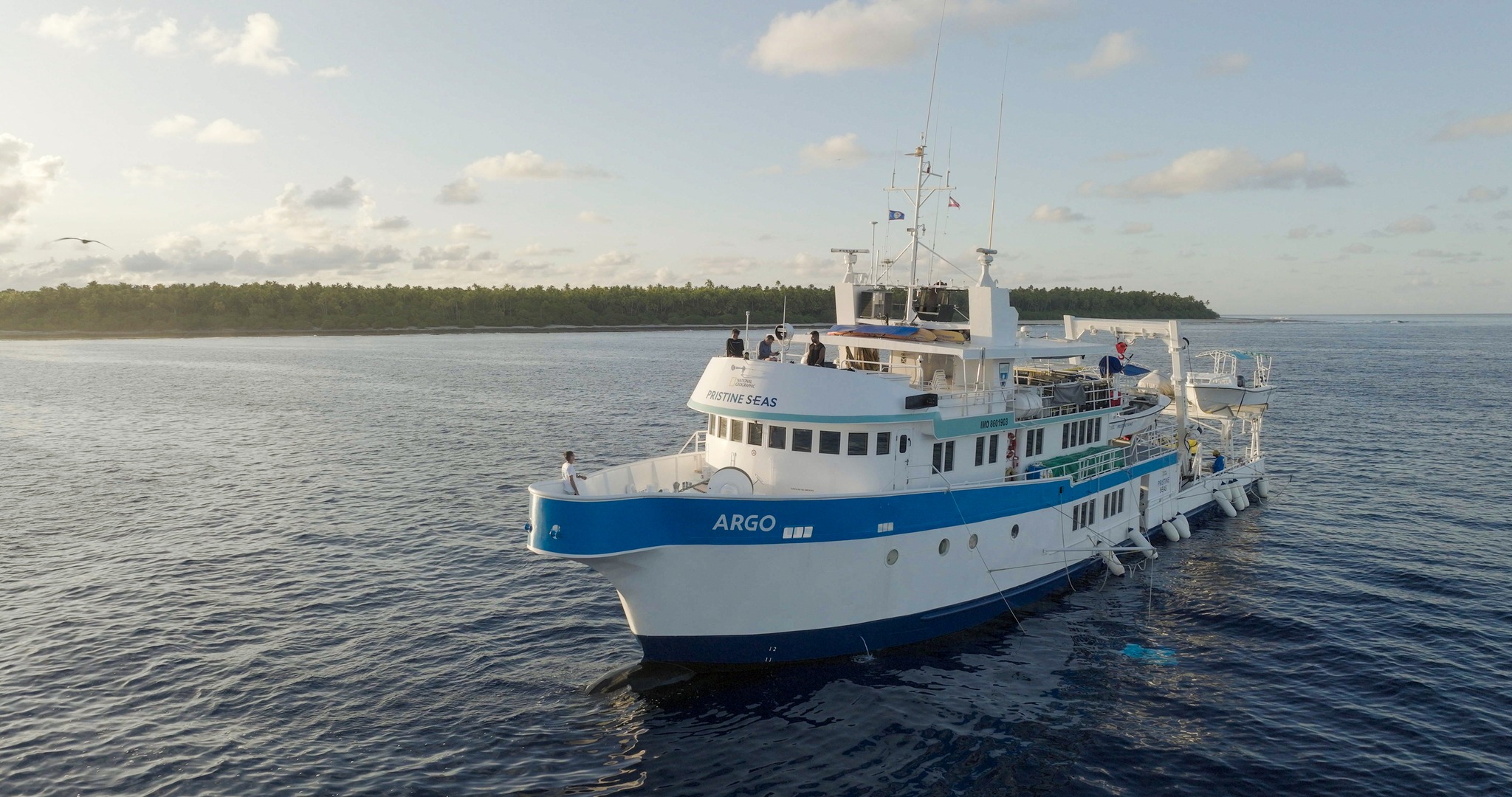Global Expedition will allow Pacific people to tell their stories
Friday 2 June 2023 | Written by RNZ | Published in Pacific Islands, Regional

The Pristine Seas team, consisting of scientists and filmmakers, will spend five years on the specially outfitted vessel, the E/V Argo, collaborating with governments, communities and local marine scientists. 23060204
National Geographic's Pristine Seas initiative has launched The Global Expedition to support conservation efforts in the remote tropical Pacific.
The Pristine Seas team, consisting of scientists and filmmakers, will spend five years on the specially outfitted vessel, the E/V Argo, collaborating with governments, communities and local marine scientists.
Since 2008, the group has conducted 38 expeditions around the world and helped establish 26 marine reserves, spanning more than 6.5 million square kilometres of ocean.
Explorer-in-residence and founder of the Pristine Seas project, Enric Sala, said the latest expedition would provide a platform for Pacific Islanders to tell their stories.
"The traditional knowledge of Pacific Islanders is extraordinary," Sala said.
"They have been there for thousands of years and they have developed this deep understanding of the natural history of their ocean."
Sala said the stories shared during the expedition would be on exploration, discovery, traditional knowledge and conservation.
The group started the journey last week and will cover 6,400km over the course of the first year, visiting Kiribati, the Cook Islands, Niue, the Federated States of Micronesia and Palau.
Steven Victor, Palau's minister of agriculture, fisheries and environment, said the importance of healthy oceans was particularly pressing for small island states in the Pacific.
"In this region, perhaps more so than anywhere in the world, whole economies, populations and cultures depend on the ocean for their survival," he said.
"It is difficult to overstate the significant and central role of oceans in human development and wellbeing."
Victor said the expedition was an opportunity to learn about parts of the ocean that had previously not been explored.
Delving into the very deep
Pristine Seas chief scientist, Alan Friedlander, said the team would explore everything "from whales and sharks down to microscopic organisms and even things we can't see at all".
"What we're trying to do is paint a comprehensive picture of how the entire ecosystem works and how it functions," Friedlander said.
"A lot of the deep sea has never been explored in many of these places.
"Between our submersible and our deepwater drop cameras that can go down to 6000 metres, there's been instances in the past where we have found new species, and we expect to see more as we move forward over the next five years in many remote areas."
The overarching goal of the expedition is to get more of the ocean turned into marine protected areas (MPAs) - aligned with the goal of protecting 30 percent of the world's oceans by 2030.
Sala said MPAs give the ocean space to bounce back.
"Marine life recovers faster than life on the land and this is what gives us hope," he said.
A study published at the beginning of this year in Frontiers in Marine Science found the Phoenix Islands Protected Area in Kiribati - covering close to double the area of New Zealand - had a negligible impact on the conservation of skipjack and bigeye tuna.
The Kiribati Government decided to re-open the area to tuna fishing.
The paper's lead author and chief fisheries scientist at the Pacific Community, John Hampton, said the problem was tuna had a wide distribution in tropical and sub-tropical waters in the Pacific.
Sala said MPAs help fishing even though that was not the objective.
He said the US tuna fleets were now catching 2-4 percent more yellowfin after the Papahānaumokuākea Marine National Monument located in the Northwest Hawaiian Islands was established.
"Their goal is to benefit marine life in general, ecosystems that contain tens of thousands of species or more.
"We should look at protection and production for marine protected areas as complementary fisheries tools for better stewardship of the ocean as a whole."
- RNZ














































